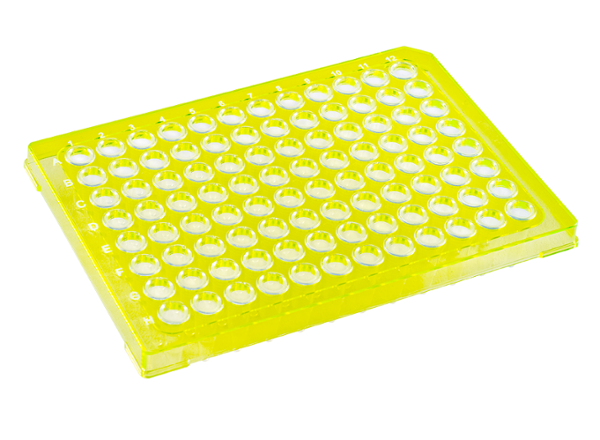
Genomics Revolution in Biotech
The genomics revolution is propelling new discoveries in medicine, agriculture, and disease prevention.

CRISPR in Biotech
CRISPR technology is unlocking new possibilities in genetic engineering and medical therapies. Learn more here.

Impact of AI on Biotechnology
Artificial intelligence (AI) is transforming the biotechnology sector in profound ways, enhancing capabilities in drug discovery, disease diagnosis, and tailored treatment strategies. This revolution is marked by the integration of advanced machine learning algorithms and data analytics, streamlining processes and improving accuracy.
AI in Drug Discovery
In the realm of drug discovery, AI accelerates the identification of potential drug candidates through predictive modeling. By leveraging vast datasets from biological research and clinical trials, AI algorithms can predict how different compounds will interact with specific biological targets. This accelerative capability is crucial in reducing the time and cost traditionally spent on discovering new pharmaceuticals. For instance, AI can analyze chemical structures to forecast efficacy and safety, helping researchers avoid costly failures early in development.
Additionally, AI-driven platforms utilize deep learning techniques to analyze genomic data, identifying genetic markers associated with diseases. This not only speeds up the drug development process but also enhances the personalization of treatment by targeting therapies that align with a patient's unique genetic makeup.
AI in Disease Diagnosis
In disease diagnosis, AI is revolutionizing the speed and accuracy of identifying conditions. Machine learning algorithms are deployed to analyze medical imaging data, such as MRIs and CT scans, with a level of precision that rivals human experts. For example, AI systems can detect early signs of cancers, neurological disorders, and other conditions by recognizing patterns and anomalies in imaging data that may be overlooked by human eyes.
Natural language processing (NLP), a subset of AI, is also being utilized to enhance diagnostic tools. By extracting and analyzing data from electronic health records, NLP can aid in identifying trends and correlations that inform diagnoses. This integration of AI not only streamlines the diagnostic process but also helps in developing more comprehensive patient profiles, ultimately leading to improved outcomes.
The Future of AI in Biotechnology
The future of AI in biotechnology holds the promise of interactive platforms where researchers can dynamically simulate biological processes and predict the outcomes of drug interactions. As AI continues to evolve, its applications in biotechnology will expand, potentially leading to breakthroughs in regenerative medicine, vaccine development, and more personalized healthcare solutions.
In conclusion, AI's role in biotechnology is crucial as it enhances drug discovery and improves diagnostic accuracy. By embracing these technological advancements, the biotechnology industry is poised to deliver innovative solutions and treatments that can significantly impact global health outcomes. As biotechnologists and researchers embrace AI, the possibilities for improved health and disease management continue to grow, representing a major evolution in how we approach medicine and patient care.

Biotech Startups to Watch
Staying informed about emerging biotech startups is essential for labs seeking innovation. These companies offer transformative solutions that enhance research, redefine patient care, and improve drug development. Monitoring these startups enables your lab to leverage new advancements, as they often pioneer technologies that streamline processes and boost accuracy.
Understanding startup prospects can foster strategic partnerships, providing early access to innovative methodologies. Integrating these solutions can enhance efficiency, reduce costs, and increase output. Don't risk falling behind; stay updated on biotech startups shaping the industry and discover how their solutions can elevate your lab's performance.

Biotech in Precision Medicine
Biotechnology is playing a pivotal role in advancing precision medicine, which aims to deliver personalized healthcare solutions tailored to individual patient needs. This approach relies on the understanding of genetic, environmental, and lifestyle factors that contribute to health and disease.
One key aspect of biotechnology in precision medicine is genomics, the study of an individual’s complete set of DNA, including all of its genes. Advances in genomic sequencing technologies have made it more affordable and accessible to identify genetic variations that influence a person's susceptibility to diseases, response to treatments, and overall health. By analyzing these genetic profiles, healthcare providers can create targeted therapies that are more effective and have fewer side effects compared to traditional one-size-fits-all treatments.
Additionally, biotechnology facilitates the development of biomarkers, which are biological indicators that can help predict disease progression or treatment response. Biomarkers enable clinicians to monitor patients' conditions in real-time, adjust treatment plans promptly, and enhance clinical outcomes.
Furthermore, biopharmaceuticals—therapeutics produced through biological processes—are often designed using biotechnological techniques. These medications can be engineered to target specific molecular pathways involved in disease, offering more effective treatment options that are tailored to an individual's unique biological makeup.
Cell and gene therapies also represent significant advancements in biotechnology, allowing for the correction of genetic disorders at their source. These innovative treatments hold the promise of curing diseases rather than simply managing symptoms, offering new hope for patients with conditions that previously had limited therapeutic options.
In summary, biotechnology is transforming precision medicine by enabling a deeper understanding of individual biology, facilitating the development of targeted therapies, and improving patient outcomes through personalized healthcare solutions. As these technologies continue to evolve, they are set to revolutionize the way healthcare is delivered, making it more effective and tailored to each person's unique health profile.

Innovations in Biotech Research
Discover game-changing innovations driving research in biotechnology and transforming global industries.

Future of Biotechnology
Take a deep dive into the trends and technologies poised to redefine biotechnology in the coming decades.

Latest Biotech Advancements
Explore the latest breakthroughs in biotechnology, from gene editing to AI-driven drug discovery.
Sustainable Pipetting Practices: Reducing Waste in the Lab
Reducing waste in the lab is achievable with sustainable pipetting practices. Learn how to implement eco-friendly choices like reusable pipette tips and efficient liquid handling techniques.

Pipette Tips 101: A Beginner's Guide to Choosing the Right Lab Consumables
New to pipetting? This beginner's guide covers the basics of choosing the right pipette tips, exploring factors like tip size, material, and specific lab applications.

